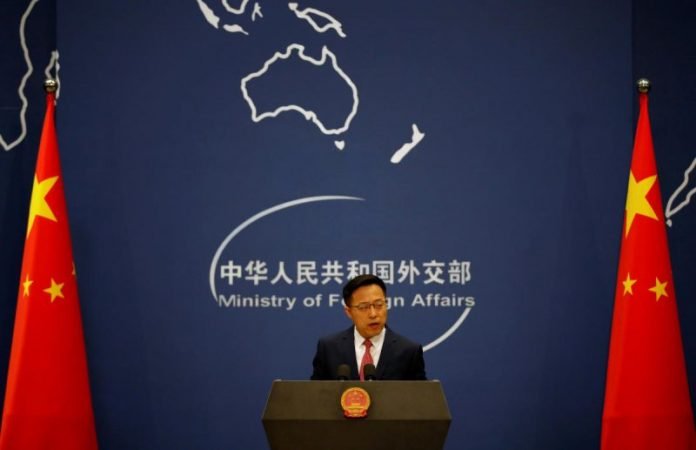China says India’s ban on Chinese apps may violate WTO rules

Citing misuse of some mobile apps for stealing and surreptitiously transmitting users’ data in an unauthorized manner to servers which have locations outside India, the government has banned 59 Chinese apps. China says India’s ban on Chinese apps may violate WTO rules.
The Indian government on Monday night banned 59 mobile apps which were termed “prejudicial to sovereignty and integrity of India, defence of India, the security of the state and public order.” The government order bans ByteDance’s TikTok and Alibaba’s UC Browser amongst others. Though all the banned Apps are Chinese, none of them has been explicitly identified be so in the press release.
The government press release said, “there have been raging concerns on aspects relating to data security and safeguarding the privacy of 130 crore Indians. It has been noted recently that such concerns also pose a threat to sovereignty and security of our country.”
It said that the Ministry of Information Technology had received many complaints from various sources including several reports about the misuse of some mobile apps available on Android and iOS platforms for “stealing and surreptitiously transmitting users’ data” in an unauthorized manner to servers which have locations outside India.
“The compilation of these data, it’s mining and profiling by elements hostile to national security and defence of India, which ultimately impinges upon the sovereignty and integrity of India, is a matter of very deep and immediate concern which requires emergency measures,” it added.
The Ministry of Information Technology, disallowed the usage of these Apps, in both mobile and non-mobile Internet-enabled devices by invoking its power under section 69A of the Information Technology Act read with the relevant provisions of the Information Technology (Procedure and Safeguards for Blocking of Access of Information by Public) Rules 2009.
In its official statement, the IT Ministry said, “The Indian Cyber Crime Coordination Centre, Ministry of Home Affairs has also sent an exhaustive recommendation for blocking these malicious apps. This ministry has also received many representations raising concerns from citizens regarding the security of data and risk to privacy relating to the operation of certain apps. The Computer Emergency Response Team (CERT-IN) has also received many representations from citizens regarding the security of data and breach of privacy impacting upon public order issues.”
“There has been a strong chorus in the public space to take strict action against Apps that harm India’s sovereignty as well as the privacy of our citizens,” it said.
The Chinese embassy in India termed the Indian government’s decision to ban the Chinese apps as “discriminatory”. It said, “We expect India acknowledges the mutually beneficial nature of China-India economic and trade cooperation, and urge the Indian side to change its discriminatory practices, maintain the momentum of China-India economic and trade cooperation, treat all investments and service providers equally, and create an open, fair and just business environment”.

It also said, “India’s measure selectively and discriminatorily aims at certain Chinese apps on ambiguous and far-fetched grounds, runs against fair and transparent procedure requirements, abuses national security exceptions and (is suspected of) violating WTO rules.”
Fresh anti-China protests had erupted across India after Indian Army lost lives of 20 of its personnel, including the Commanding Officer of 16 Bihar in a violent face-off with Chinese troops in Ladakh’s Galwan valley on the night of 15 June. Online campaigns to boycott Chinese mobile apps and electronics products were already there since early May due to the Himalayan border dispute. The backlash against China over faulty testing kits, alleged suppression of actual numbers of infection and handling of the pandemic, had also been fuelling online campaigns.
This isn’t the first time that Chinese products or brands have drawn flak in India. But it is the strongest move against China by the Indian government in the online space since fighting erupted on the two countries’ border this month. During the Doklam standoff, similar sentiments surfaced, but eventually, they all fizzled. In 2014, Xiaomi was pulled up and its phones were banned by Indian Air Force, after security company F-Secure found that the phones were sending details like phone number, IMEI number, name of the operator to a remote server in China.
While the previous boycott calls have focused on Chinese goods, online campaigns today especially targets Chinese apps, which could impact Chinese technology companies who have seen India as a crucial market. The stakes are high for firms like ByteDance, which plans to invest $1 billion in India and had recently ramped up hiring.
The full list of 59 banned apps can be found here


















